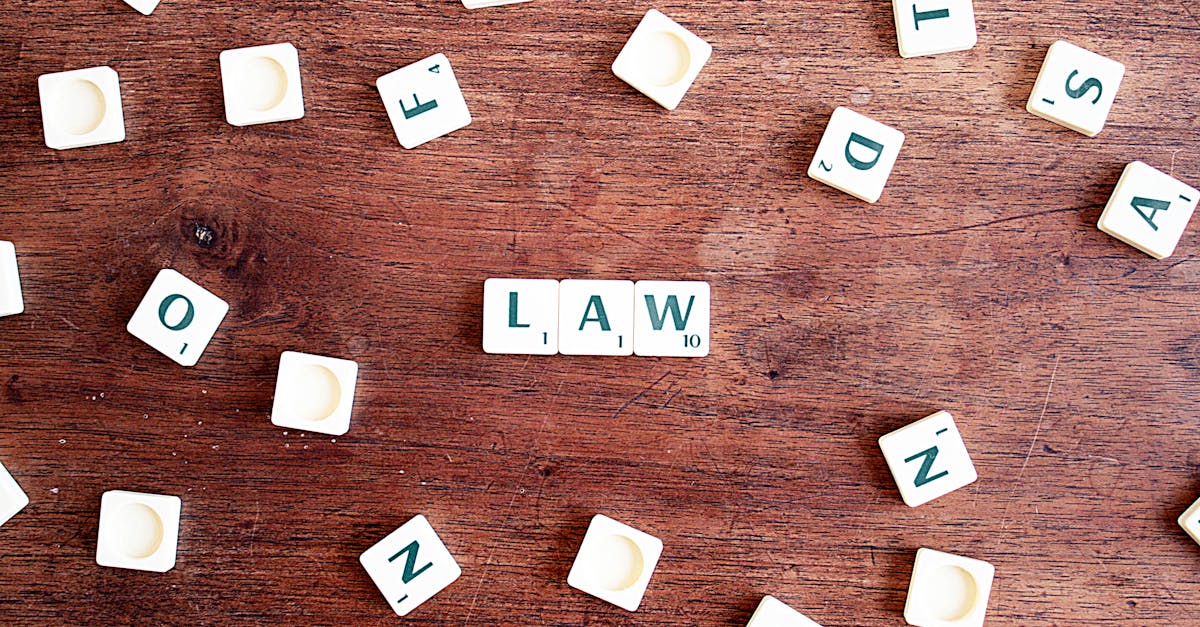What does mediate dispute mean?

How to Prepare for Mediation
Preparing for mediation involves several key steps that can significantly influence the outcome of the process. Individuals should collect and organize all relevant documents related to the dispute. This may include contracts, emails, or any correspondence that outlines the issues at hand. Understanding the facts and being able to articulate them clearly can foster a more productive dialogue during mediation. Additionally, it is helpful to outline desired outcomes and potential compromises, as this clarity will guide conversations during the sessions.
Mediating disputes requires a willingness to listen and engage with the opposing party in a constructive manner. Consider practicing active listening skills prior to the session. This preparation can help in recognizing the other party's needs and concerns, creating a basis for resolution. It's also beneficial to discuss strategies and approaches with a neutral third party or legal counsel. Such discussions can provide insights into effective communication methods, strengthening one's position during the mediation process.
Essential Steps Before the Session
Preparing for mediation requires careful consideration and organization. Parties involved should gather all relevant documentation related to the dispute. This includes contracts, emails, and any other pertinent materials that can provide context during the conversation. Understanding the key issues at stake is essential for effective negotiation. Establishing clear goals and outcomes helps to focus the mediation session.
Mediating disputes often involves understanding the perspectives of all parties. Engaging in pre-mediation discussions can help clarify positions and foster a cooperative spirit. Each party should think about their underlying interests, not just their stated positions. This awareness aids in finding common ground during the mediation process. Setting a positive mindset can significantly influence the potential for a successful resolution.
The Role of Communication in Mediation
Effective communication forms the backbone of successful mediation. It helps parties express their needs, feelings, and perspectives clearly, contributing to a more productive environment. Mediating disputes often hinges on each individual's ability to listen actively, allowing them to understand not just the words spoken but also the underlying emotions. This level of engagement fosters empathy, creating a foundation for compromise and resolution.
In addition to listening, the way parties articulate their thoughts can significantly influence the mediation process. Articulate communication can clarify misunderstandings and clarify intentions, which is vital in a setting where emotions may run high. By emphasizing respect and openness in discussions, mediating disputes becomes less about positional bargaining and more about collaborative problem-solving. This approach encourages a more amicable atmosphere, making it easier for all involved to work towards a mutually beneficial agreement.
Importance of Open Dialogue
Open dialogue serves as a cornerstone in the mediation process. When parties engage in honest communication, they create an environment conducive to understanding each other's perspectives. This willingness to express thoughts and feelings can help uncover underlying interests that may have contributed to the dispute. Mediating disputes effectively relies on the ability of all parties to share their viewpoints openly, fostering empathy and cooperation.
Encouraging open dialogue also helps to break down barriers that may have formed during the conflict. As participants voice their concerns, they can clarify misunderstandings and identify areas of agreement. This proactive approach not only aids in resolving the current dispute but also prepares the ground for healthier interactions in the future. By prioritizing communication, parties involved in mediating disputes can work together toward a mutually satisfactory resolution.
Legal Considerations in Mediation
Mediating disputes often involves a variety of legal considerations that participants should understand. Participants must recognize that mediation is a voluntary process, allowing them to control the outcome rather than leaving it to a court's decision. Understanding the legal framework surrounding mediation, including state laws and regulations, is crucial for ensuring that the process is conducted fairly and in accordance with legal standards.
Another important aspect of the legal considerations in mediation is the confidentiality agreements that typically accompany the process. These agreements protect the information exchanged during mediation, encouraging open dialogue and honest communication among parties. Participants should familiarize themselves with the specifics of these agreements, including what can be disclosed and any limitations that may apply after the mediation concludes.
Understanding Confidentiality Agreements
Confidentiality agreements play a crucial role in mediation processes. These agreements ensure that all discussions and materials shared during mediation sessions remain private. Participants can feel secure knowing their statements and any sensitive information will not be used against them in future legal proceedings. This atmosphere of trust encourages open communication, which is vital for effectively mediating disputes.
Understanding how confidentiality works is essential for all parties involved. It allows individuals to express their thoughts and concerns without fear of exposure. Creating a safe space fosters honest dialogue, enabling mediators to facilitate resolutions that might not be possible in a more adversarial setting. Establishing clear confidentiality terms can significantly enhance the mediation experience for everyone involved.
FAQS
What does it mean to mediate a dispute?
Mediation is a process in which a neutral third party, known as a mediator, facilitates communication between disputing parties to help them reach a mutually acceptable resolution.
How does mediation differ from arbitration?
Unlike arbitration, where an arbitrator makes a binding decision, mediation focuses on helping the parties negotiate their own agreement with the mediator's assistance and does not impose a solution.
What are the benefits of mediation in resolving disputes?
Mediation offers numerous benefits, including cost-effectiveness, a faster resolution process, confidentiality, and the opportunity for the parties to maintain control over the outcome.
Is mediation legally binding?
Mediation itself is not legally binding unless the parties come to a formal agreement that is then documented and signed, which can be made enforceable in a court of law.
Who can act as a mediator in a dispute?
A mediator can be any neutral individual trained in mediation techniques, which may include professionals such as lawyers, counselors, or specifically trained conflict resolution experts.